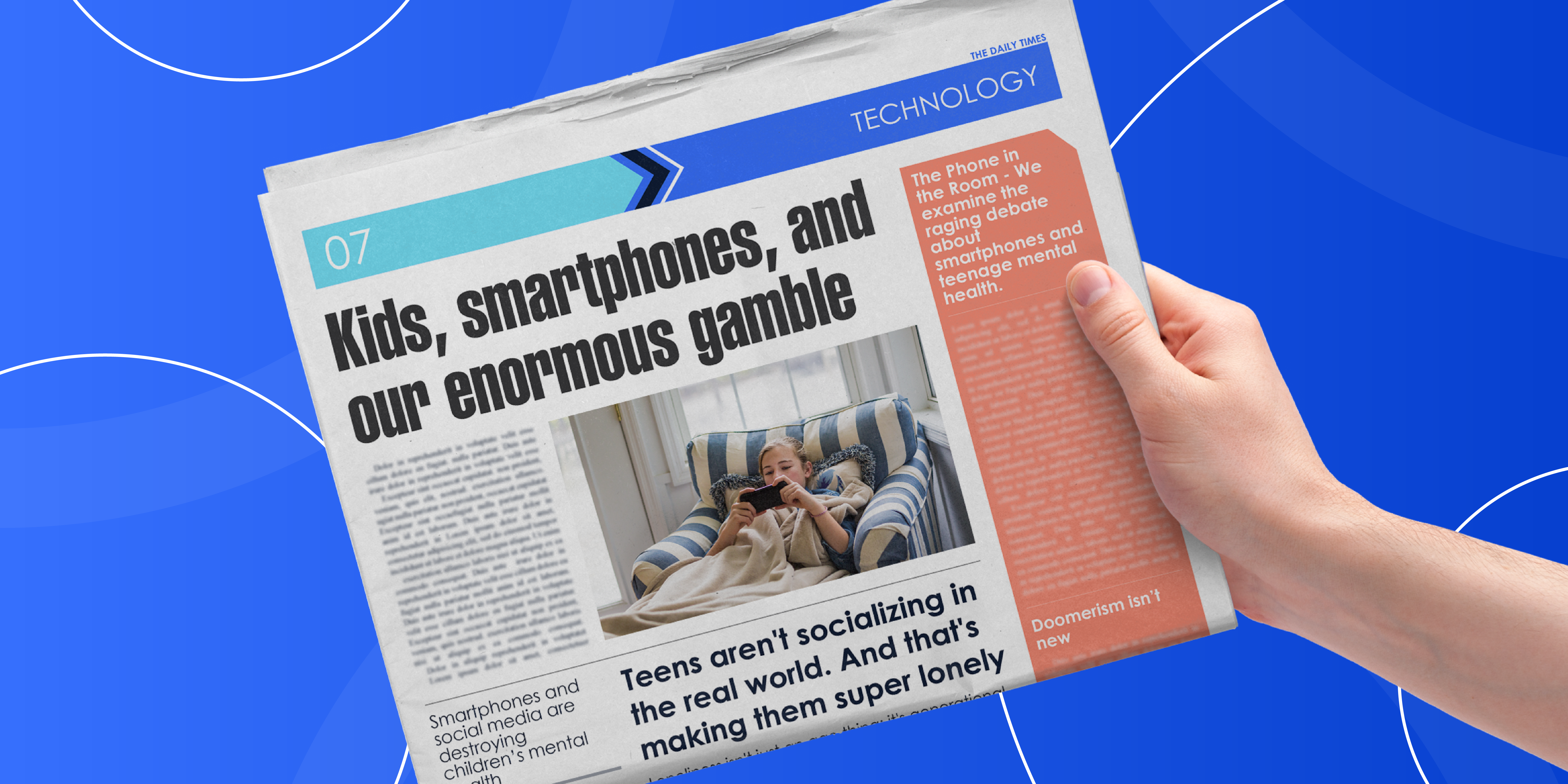In an era where we're seemingly inseparable from our smartphones, it's no surprise that this attachment has stirred a storm of worry and apprehension. Our newspapers, TV screens, and social media feeds are chock-full of experts voicing concern over smartphone and social media addiction, especially in adolescents. However, it's time to rebel against the status quo and shift the narrative.
At the heart of this rebellion is a groundbreaking study published in the journal, Computers in Human Behavior. The research, conducted with a diverse group of late adolescents (18-25 years old), dared to ask:
Does the age at which an adolescent gets their first smartphone really matter?
Before we dive into the findings, let's take a quick tour of the media landscape that paints smartphones as the ultimate villains of our time.
From fear of social media-induced depression to the terrifying term "nomophobia" (the fear of being without a mobile phone), it's clear that society has some serious reservations about our handheld companions.
According to an article from Psychology Today, "Adolescents who spend more time on electronic communication and screens (e.g., social media, video games, texting) and less time on non-screen activities have lower psychological well-being." …(even though there are a host of other studies that show the opposite, or at least that it’s a bit more nuanced than simply the amount of screen time)
But the question remains:
Is it really the timing of smartphone acquisition that determines an adolescent's future mental health, or have we been missing the mark?
Back to our rebellious study - after surveying late adolescents who received their smartphones in early, middle, or late adolescence, the research found something pretty unexpected. The timing of smartphone acquisition was NOT significantly predictive of their well-being later on.
It didn’t matter at all.
Instead, three critical themes emerged from participants' experiences:
-
Development and Growth: Maturity plays a massive role in responsibly navigating the world of smartphones. Those who demonstrated a sense of responsibility could harness the potential of smartphones for their personal and intellectual growth.
-
Parents: Gatekeepers to Acquisition: Parents are critical in deciding when their child is ready to own a smartphone. This responsibility extends beyond simply handing over the device—it encompasses continuous guidance about responsible usage. Supervision is key.
-
Smartphones Necessary for Adolescent Access: In this digital age, smartphones aren't just a luxury—they're necessary for communication, schoolwork, and even social status among peers. A lack of a smartphone might inadvertently lead to social exclusion, which can in turn lead to lower well-being.
It seems we've been asking the wrong question all along.
Rather than focusing on the 'right age,' we should shift our attention towards fostering maturity and responsible use.
In today's world, the digital literacy of a child is as important as their traditional literacy.
In his book "The Art of Screen Time," author Anya Kamenetz likens media to food. Just as we teach children to eat healthily, we should guide them to use media, including smartphones, in a balanced, healthy way.
So, it's time to leave the panic behind and start the smartphone rebellion.
We need to move from fear to understanding, from restriction to guided exploration (Hint: You NEED the Aqua One), and from worry to empowerment.
Let's change the narrative and equip our children to make the most of the digital age, not fear it.
Remember, the rebellion isn't about rejecting technology; it's about understanding its place and making it work for us, not against us. So, are you ready to join the smartphone rebellion?
